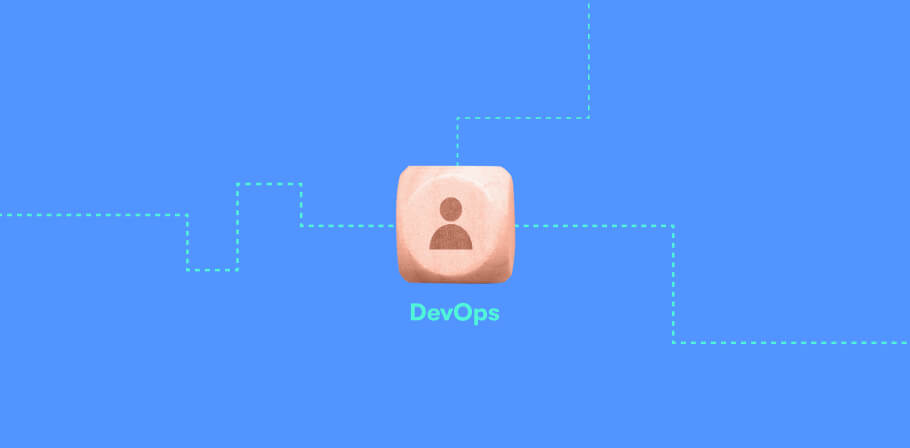Despite COVID-19 pandemic restrictions, tourism is still a trendy business niche. There are well-known big players here like TripAdvisor, Booking.com, Airbnb, as well as small and medium-sized travel agencies who struggle daily to ensure their competitiveness and customer loyalty. Big data plays an essential role in achieving these goals, helping to understand customer needs better, analyze the current state of the market, and automate some work processes. We will discuss the role of big data in travel and tourism in more detail below and reveal how you can profit from using it in the travel and tourism industry, increase your profits, and optimize processes.
Big Data in the Travel Industry: Be Part of the Industry's Future
In tourism, as in many other business sectors, big data is responsible for accurate decision-making. Typically, they are involved in customer demand forecasting, service personalization, as well as travel marketing, and pricing strategies optimization.
Big data is often used in conjunction with artificial intelligence and machine learning, allowing analytics departments to find patterns in large streams of unstructured information automatically. For example, this combination of technologies makes it possible to determine which particular characteristics of hotels affect user satisfaction or understand, based on the history of trips, which destinations a customer is most likely to buy a ticket to.
In general, big data is usually not a stand-alone technology, as it requires additional methods for storing, structuring, and analyzing it. However, this is exactly what helps tourism business owners to understand their customers better and anticipate their needs.
Three Types of Big Data Analytics in Tourism
Descriptive Analytics
Descriptive analytics works with both real time and historical customer data. Their analysis provides an objective assessment of what might happen in the near future. Particularly in tourism, this type of analytics will be useful for reducing costs (for example, selling last-minute discounted tours) and improving forecasting accuracy (for example, 80% of full-price sales or 50% of early booking sales).
Predictive Analytics
Travel companies use this type of analytics to identify long-term forecasts based on previous trends and patterns. For instance, predictive analytics helps find out what types of trips (study, business, romance, business travel, or health and wellness) and what geographic destinations will be the most popular next season.
Prescriptive Analytics
And finally, prescriptive analytics, a more advanced version of predictive analytics that uses simulation scenarios. This type of analytics not only generates forecasts, but also helps a travel company identify the most promising business strategies to maximize profits and reach customers.
Sources of Big Data in Tourism
UGC data (generated by users)
This abbreviation stands for User Generated Data. This is the cheapest data to obtain and includes textual data obtained from questionnaires and social networks, as well as photo data.
Device data (by devices)
This data is quite expensive to obtain (its cost depends on the territories covered and the period allocated for the study) and includes GPS data, mobile roaming data, Bluetooth data, etc.
Transaction data (by operations)
This source includes web search data, web page visit data, online booking data, etc. Typically, advanced web services such as Google Analytics are used to obtain this data.
BOOST YOUR BUSINESS IN TRAVEL USING BIG DATA
Consider working with EPAM Startups & SMBs to take advantage of our travel & hospitality software development services and the experience we’ve gained over decades. Reach out to our team and tell our experts about your project.
Key Benefits of Big Data in Travel
Finally, it’s time to segment the benefits that travel companies receive from big data.
Revenue management
Let’s start with revenue management. With the help of big data generated by users, you can optimize your costs and more accurately predict revenues – both in the short term (for local events) and in the long run. Thus, the level of profit becomes predictable (in particular, with a big data solution, you can calculate more precisely occupancy rates), and you expose yourself to less risk of unexpected costs.
Enhanced analytics
Big data in tourism involves the use of historical and real-time data. At the same time, standard analytical approaches use only historical one. This is why big data solutions are more effective at predicting when trends change dramatically (as was the case with the COVID-19 pandemic, for example).
Seasonal management
The ability to quickly process large amounts of information from your target audience determines the effectiveness of seasonal marketing and optimizes long-term forecasting. Thus, you do not have to act randomly when choosing new geographical destinations and tour formats.
Information brokers’ management (ex. TripAdvisor)
Instead of manually collecting information posted by well-known travel brokers (unfortunately, often with this approach, flight offers are already out of date at the time the offer is created), you can use a big data solution to automate and speed up the creation of new offers for your clients.
Big Data Challenges in the Tourism Industry
For the sake of objectivity of our review, we will also look at the challenges that big data solutions can face in the travel industry.
Privacy and security
Big data is being generated at a phenomenal rate that currently exceeds the ability to properly collect, process, store, and analyze this info for timely, meaningful use. In addition, traditional IT security systems are not flexible and scalable enough to protect this information. That's why it's so important to look for advanced solutions to secure your analytics data.
Data ownership
Since big data in the tourism industry comes directly from users and personal devices, it’s very important to provide full compliance with GDPR and HIPAA policies. This is necessary so that your users can easily and safely delete their info if they want to.
Data handling
Processing big data that comes in real-time requires special technologies (otherwise, this procedure will be too resource-intensive). Usually, for this, as we wrote above, machine learning and artificial intelligence are used.
Data storage
As a rule, to store big data for tourism, business owners use public cloud environments (for example, from giants such as Amazon, Microsoft, and Google) or private ones (this option is typical for the corporate segment) are used. As for storing your resources, it’s very expensive, because it requires the purchase of high-performance equipment.
How Big Data Is Used in the Travel Industry to Augment Profitability
How is big data being used in the travel industry? Now we propose you take a look at the examples of the big data application in this business niche.

Revenue optimization
Big data, based on the satisfaction of existing customers and future customers' expectations, helps get more accurate information about the potential profit. In particular, the pricing procedure is simplified due to the correct forecasting of peak periods of maximum demand, as well as the relevance of services based on current market trends.
Reputation improving
In a time when almost everyone is eager to leave their opinion about any service on social networks, business owners should pay special attention to these reviews and work with reputation. For example, there are special reputation management services for analyzing the tone of voice, which determine the average opinion about a particular subject of research as a whole.
Strategic marketing
Big data is dates and numbers related to those dates. Together, this information can be used to accurately predict and model future business strategies. As a rule, to create such models, additional tools based on artificial intelligence are needed.
Personalization of the customer experience
Big data can help you understand how your customers think and what exactly they want. Moreover, thanks to forecasting tools, you will be able to predict their future needs caused by new popular trends in tourism.
Marketing research
Big data helps you collect information about your competitors and your target audience based on last year's or even older reports, but in real-time. No other technology will give you the same precision in your research.
Targeted marketing
Given the diversity of customers who may contact you, it will probably be difficult for you to develop a single target marketing strategy for attracting and retaining them. In turn, big data can analyze an infinite number of representatives of your target audience, segment them into groups, and thus help create a targeted approach to each type.
Big Data in Travel Software Development Outstanding Use Cases by EPAM
EPAM Startups & SMBs, a cooperation platform launched by the global software development company EPAM, focuses on cooperation with small and medium-sized businesses. EPAM Startups & SMBs allocates for each project top specialists who have had the experience of working with representatives of big business – for example, with companies from the Fortune 100 list. It’s noteworthy that the main implication of such an approach is to transfer the advanced methodologies and practices even to small projects with a limited budget.
As a result, absolutely all of EPAM Startups & SMBs clients receive a top product for their business niche, and we get another great cooperation experience.
Let's look at several case studies out of EPAM's portfolio relevant to the travel industry and big data. You can also read more about our big data development services.
Connect@Changi
Connect@Changi is the world’s first pilot business travel exchange facility, located in Singapore. EPAM was appointed as a partner of the project for:
- providing a seamless experience for business travelers that lessens their time spent in COVID-19 quarantine;
- simplifying the unfamiliar travel process;
- granting the guests the much-needed assurance, etc.
As a result, EPAM delivered the prototyped project in just four months and became a winner in the ‘Business Travel Technology’ category at the 2021 Singapore Business Review International Business Awards.
Thanks to the collaboration, Connect@Changi achieved the following results:
- 120 current bookings;
- 425 app downloads on iOS and Android;
- 1,595 web visits to connectatchangi.com.
TUI Group
TUI Group is a multinational travel and tourism company, based in Hanover. At some point, its decentralized asset database has stopped meeting business needs. In particular:
- manual content submission processes were neither connected with upstream systems nor uniform with taxonomy and metadata requirements;
- deterioration of content quality from country to country, as there were no standards for digital assets or a way to reuse content from one country to the next;
- partners were unable to conveniently and effectively advertise their travel offerings.
This travel and big data solution with a new upload tool using ADAM/Hybris has these key features:
- centralized asset storage for the multiregional company;
- unified solution for asset management, gathering, and distribution;
- built-in approval, rights management, and licensing workflows for the uploaded assets;
- storage of different types of content, including images, photos, documents, videos, presentations, etc.
The company’s digital solution received such results:
- storing of 1,200,000 assets in total;
- using in 10+ locations worldwide;
- import and export of thousands of assets per month.
Southwest Airlines
In 2017, Southwest Airlines decided to collaborate with EPAM to improve the in-airport customer experience, so travelers could get to their destination without worrying about the journey. The main challenges of existing digital solution were:
- lack of clear and accurate information;
- excessive gate crowding;
- lack of meaningful customer service.
To fix them, EPAM built a new digital wayfinding system for the customers. The team also redesigned all of the existing airport signage and added new sign types at key locations throughout the airport. As a result, 96% of customers said the new signs made it easier to navigate the airport, and customers rated the usefulness of the new system as 4.77 on a 5-point scale.
HIRE EPAM STARTUPS & SMBS TO OVERCOME BIG DATA CHALLENGES PROFESSIONALLY
Cooperating with our top talent, you can be sure that none of the above problems will overtake your project. Contact us, and we will discuss your goals in detail.
Conclusion
Let's summarize all the things we said about big data analytics in the tourism industry. As you can see, big data in the travel industry is not just another trend technology, but a tool for better understanding the market situation and each client in general (potential and existing). All this forms an excellent foundation for a more personalized approach and more accurate prediction of what customers want.
In particular, in the context of improving KPI indicators, big data has become a source of more accurate and up-to-date information about Net Promoter Score (NPS), Customer Satisfaction Score (CSAT), Social Share of Voice (SSoV), etc. This is why the use of big data, even in the first months, can significantly strengthen the competitive advantage of the tourism business.
FAQ

Expert digital communicator and editor providing insights and research-based guides for technology buyers globally.
Expert digital communicator and editor providing insights and research-based guides for technology buyers globally.
Explore our Editorial Policy to learn more about our standards for content creation.
read more

















